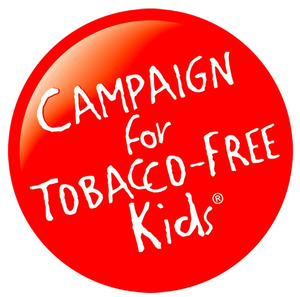WASHINGTON, Dec. 15, 2021 /PRNewswire/ -- The 2021 Monitoring the Future survey results released today provide fresh evidence that youth e-cigarette use remains a serious public health problem in the United States, with nearly 1 in 5 high school seniors (19.6%) reporting that they vaped nicotine in the past month (considered current use). While this is a decline since youth e-cigarette rates peaked in 2019, it is nearly the same level as in 2018 (20.9%) when the U.S. Surgeon General, the FDA and other public health authorities declared youth e-cigarette use to be a public health epidemic.
The 2021 survey was conducted during the first half of this year when many schools remained closed because of the Covid-19 pandemic, reducing kids' exposure to peer pressure and access to e-cigarettes. With kids now back in school, we face the real risk of a resurgence in youth e-cigarette use unless the FDA acts without further delay to eliminate the flavored or high-nicotine products that have fueled this youth addiction crisis. We know from another survey – the 2021 National Youth Tobacco Survey – that 85% of youth e-cigarette users report using flavored products, with fruit, candy/desserts/other sweets, mint and menthol reported as the most popular flavors.
In very positive news, the Monitoring the Future survey also shows that youth cigarette smoking fell to record lows this year, with past-month smoking rates of 4.1% for 12th graders, 1.8% for 10th graders and 1.1% for 8th graders. While this year's results are likely impacted by the pandemic, they continue a remarkable long-term trend that has seen smoking rates among 12th graders fall from a high of 36.5% in 1997 to just 4.1% this year. This is a huge public health win that will save lives for generations to come.
Our challenge now is to continue driving down youth smoking rates and stop tobacco companies from addicting a new generation with flavored e-cigarettes. The FDA faced a court-ordered September 9 deadline to act on e-cigarette marketing applications and, in a positive step, has denied applications for more than 1 million flavored e-cigarette products. However, the FDA has yet to issue decisions about the e-cigarette brands that have the largest market share or are most popular with kids, such as Juul, Vuse, NJOY, blu, Smok and Suorin. The FDA is also considering whether to authorize any menthol-flavored e-cigarettes despite the popularity of menthol products with kids. In addition, more than 40 e-cigarette companies have filed lawsuits challenging the FDA's marketing denial orders, and other companies – including Puff Bar, the flavored, disposable e-cigarette that has become the most popular brand among kids – have sought to evade FDA regulation by using synthetic nicotine (nicotine made in a lab rather than derived from tobacco). To end the youth e-cigarette epidemic for good, the FDA must clear the market of all flavored or high-nicotine e-cigarettes – including menthol products – and crack down on companies seeking to evade regulation with synthetic nicotine.
States and cities must also continue their growing efforts to end the sale of all flavored e-cigarettes, as well as other flavored tobacco products. State and local action is as critical as ever given the uncertainty about what the FDA will do and when, the legal challenges to FDA actions and the efforts of e-cigarette manufacturers to evade FDA regulation with synthetic nicotine.
The Monitoring the Future survey is conducted by the University of Michigan's Institute for Social Research and is funded by the National Institute on Drug Abuse (NIDA). View the 2021 Monitoring the Future data tables.
SOURCE Campaign for Tobacco-Free Kids

WANT YOUR COMPANY'S NEWS FEATURED ON PRNEWSWIRE.COM?
Newsrooms &
Influencers
Digital Media
Outlets
Journalists
Opted In





Share this article